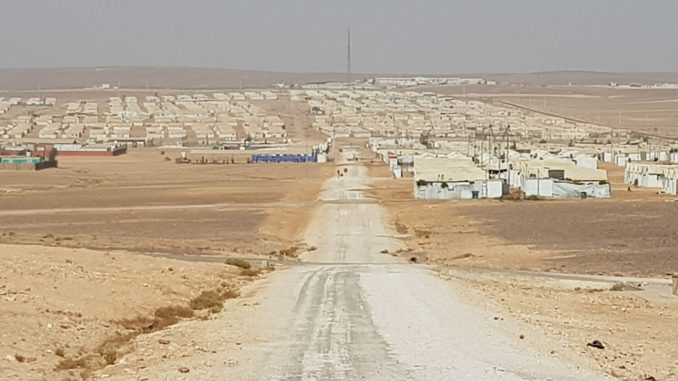
From October 10th to October 28th 2018, I conducted a field trip to Al-Azraq Refugee Camp in the Hashemite Kingdom of Jordan. My colleague Dr. Hamza Safouane and I – supported by Prof. Dr. Fawaaz Momani and Yarmouk University Irbid – all in all talked to more than fifty people who in one way or another had experienced Daesh’s attempts to govern in Iraq and Syria.
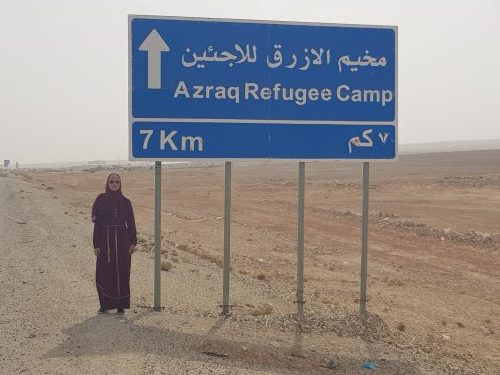
Right now, we are transcribing and analyzing about 30 hours of interview material which will support and expand my current research project to better understand the administrative and governance structures of the terrorist group Daesh (so-called “Islamic State”).
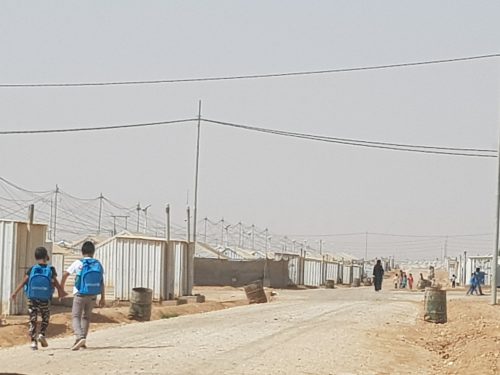
The project focuses on four governance regimes as case studies to describe Daesh’s mode of governance:
- The caliphate’s border regime (both physical and virtual/symbolic delineation from the
outside and integration of the inside of the socio-political community/self-defined ummah
(key categories: membership, citizenship, access, transit) - The security regime
(key categories: policing & surveillance, military structures) - The legal regime (key categories: judiciary, arbitration, penal law and punishments,
administrative law and process, interpretation of sharia law) - The educational regime (key categories: schooling and universities, relationship family
and public sphere, relationship collective and individual, the “new human” – „from cubs to lions“)
To describe these regimes, several situations are analyzed to understand governance practices „bottom-up“. These situations are operationalized through one-and-one interviews as well as group interviews as both witness accounts and narratives of personal experiences (“thick descriptions”). The practices then are contextualized with the results of the analysis of administrative documents and official statements.
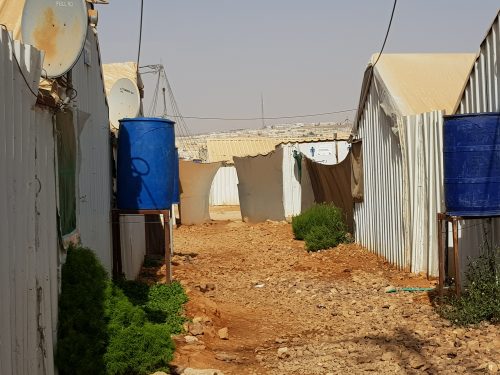
The Semi-Structured Interview Questionnaire
All in all, over 20 topics were included in the semi-structured interview questionnaire. Not all Topics were part of each interview. The selection of topics depended on interviewee’s gender, age, social background and level of comfort with the questions. Questions were asked in Arabic. Here’s a sample of our questions:
Summary of the Purpose of the Project:
I am interested to learn about day-to-day life under the rule of Daesh from 2013 onwards. Also, I hope to better understand how the group was able to claim the rule over people and territory and how they managed to actually rule the people living on the territory controlled by them. You personally have experienced what Daesh and their members actually did to realize their goals. I’d highly value your insights and I hope that you feel comfortable to share your experiences with me.
– Wait for interviewee’s reaction/response –
Topics and concrete questions about interviewee’s experiences:
Q9: When/during what period did you experience Daesh’s rule?
Q10a: Where did you experience Daesh’s rule? (Province, Region, City, village)
Q10b: Has Daesh taken over your place of residency?
Q 10c: Have you ever travelled to/from the “Caliphate” and/or have you had to transit through
Daesh controlled territory?
Q11: Topic 1. Citizenship, Border Regime and Freedom of Movement
a) Where exactly have your entered/left Daesh’s controlled territory?
b) At what point during your journey to the Caliphate did you have the feeling that Daesh
had control over your movements? When did the people around you refer to Daesh as responsible/wear any emblems or other identification symbols relating to the
“Caliphate”?
c) Did you travel/transit alone or in a group?
d) Can you describe the process of your border crossing? What details can you recall?
(buildings/fences of the check-point, registration, administration, symbols)
e) What kind of official „papers“ did you have to fill out/were filled out/filed for you?
f) Have you left Daesh controlled territory via an official check point? […]
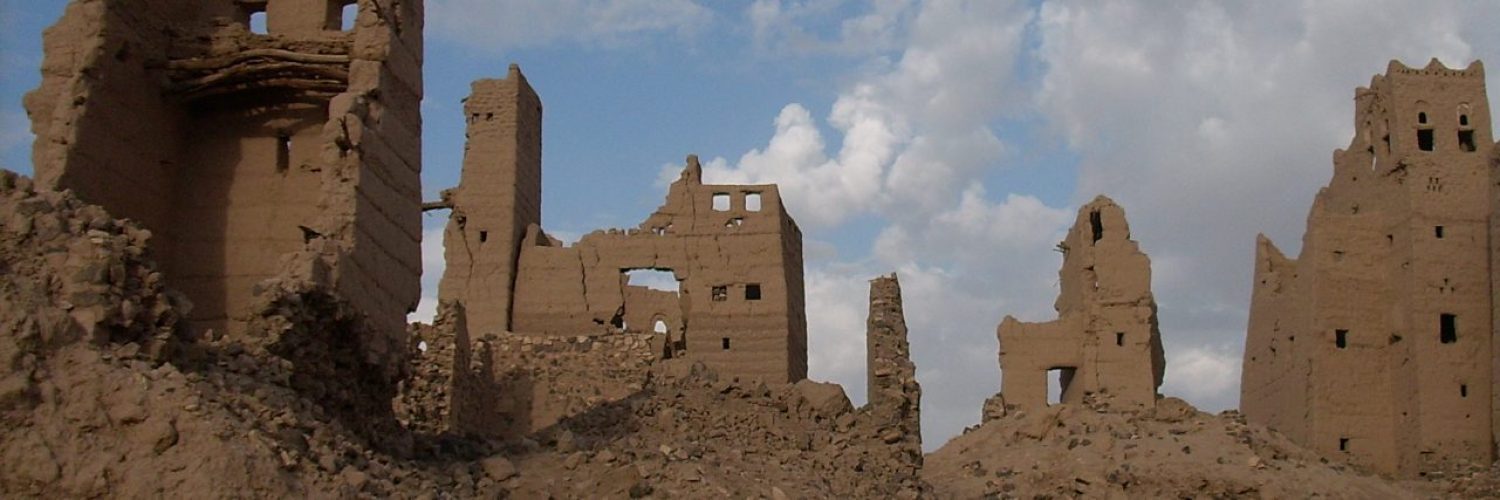
Antworten